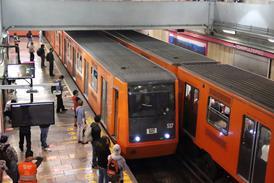Close menu
- Home
-
News
- Back to parent navigation item
- News
- Traction & Rolling Stock
- Passenger
- High Speed
- Freight
- Infrastructure
- Policy
- Technology
- Ticketing
- Business
- Research, Training & Skills
- Accessibility & inclusion
- People
- Urban rail news
- Suburban and commuter rail
- Metro
- Light rail and tram
- Monorail and peoplemover
- Regions
- InnoTrans
- In depth
- Events
- Data
- Maps
- Tenders & Jobs
- Sponsored content
- Insights
Trans-Afghanistan railway survey finds no technical problems with route
By Railway Gazette International16 August 2022

AFGHANISTAN: A preliminary field survey has identified no technical problems with the proposed route for a 780 km trans-Afghanistan railway which would link Uzbekistan with Kabul, Jalalabad, the border with Pakistan and Peshawar.
Already have an account? LOG IN
To continue…
You’ve reached your limit of content for the month
Get enhanced access to Railway Gazette news and weekly newsletters.
Site powered by Webvision Cloud














